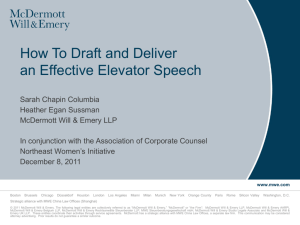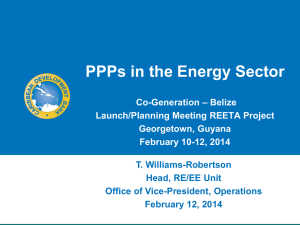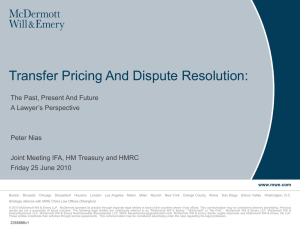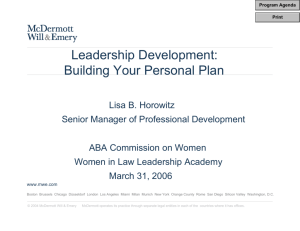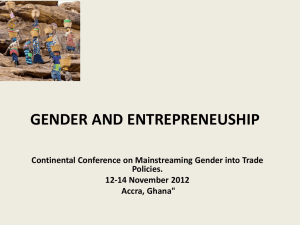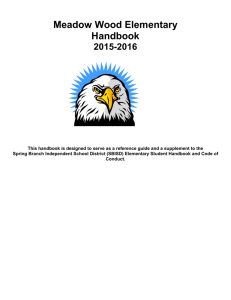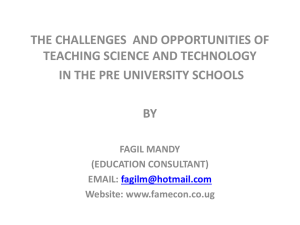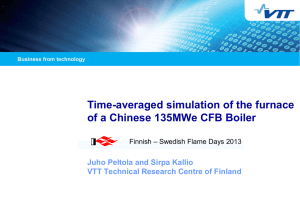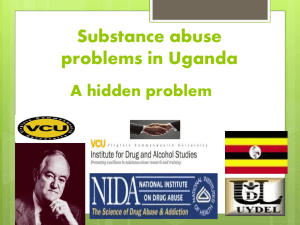Water policy development in Uganda
advertisement
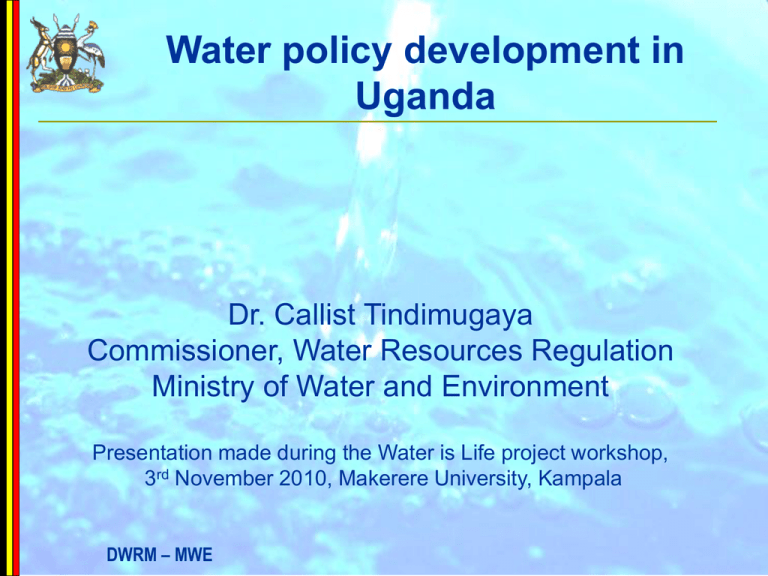
Water policy development in Uganda Dr. Callist Tindimugaya Commissioner, Water Resources Regulation Ministry of Water and Environment Presentation made during the Water is Life project workshop, 3rd November 2010, Makerere University, Kampala DWRM – MWE Legal and policy framework for the water sector in Uganda • • • • • Constitution (1995)- Government recognizes the role of water in the development of Uganda National Water Policy (1999)- Water is considered as a social and economic good Water Act (1995)- the rational management and use of the waters of Uganda Environmental Act (1995)- Sustainable environmental management Relevant regulations (1998) DWRM – MWE National Water Policy • - Developed under 2 distinct categories Water Resources Management (covering policy objectives, principles and strategies for monitoring, assessment, allocation and protection of the resource and management framework) - Water Development and use (covering policy objectives, principles and strategies for the development and use of water for domestic water supply, water for agricultural production, and other water uses including industry, hydropower, recreation and ecosystem needs) DWRM – MWE National Water Policy provides for: • • • • • • • Separation of regulatory powers from user interests Integrated and sustainable development, management and use of water resources with full participation of all stakeholders Regulated use of all water other than for domestic use Sustainable provision of clean safe water Development and efficient use of water in agriculture Improved collaboration and coordination among stakeholders Equitable access and use of the Nile waters (transboundary water resource) DWRM – MWE NWP (cont.) • • • • • Promotion of awareness of water management and development issues and capacity building Promotion of rational, optimal and wise use of the resource for all Ugandans and all sectors Promotion of measures for control of pollution of water resources Promotion of the gathering and maintenance of reliable water resources information and databases Promotion of viable management options for the resource management and provision of water supply and sanitation services DWRM – MWE NWP objective for WRM To manage and develop the water resources of Uganda in an integrated and sustainable manner, so as to secure and provide water of adequate quantity and quality for all social and economic needs of the present and future generations with the full participation of the stakeholders DWRM – MWE Strategies for WRM • Establishment of an enabling environment • Development of appropriate institutional framework • Planning and prioritization of water use (policy making, planning and coordination of water resources use; regulation of water abstraction and waste water discharge; enforcement of water legislation and policy; mediation in water conflicts) • Data collection and data dissemination (water resources monitoring; assessment; forecasting) • Capacity building DWRM – MWE NWP objective for domestic water supply Sustainable provision of safe water within easy reach and hygienic sanitation facilities, based on management responsibility and ownership by the users, to 75% of the population in rural areas and 100% of the urban population the year 2015 with an 80%-90% effective use and functionality of facilities DWRM – MWE Strategies for domestic water supply • • • • • Identification of appropriate low cost technologies and provision of services Identification of appropriate financing mechanisms and promotion of investment subsidies and tarrifs Promotion of management and sustainability aspects Promotion of private sector participation Promotion of coordination and collaboration among stakeholders DWRM – MWE Relevance of Water is Life Project to the National Water Policy • • Project contributes to implementation of various strategies under the NWP Contributes to promotion of management and sustainability aspects as well as improving water resources management planning and regulatory framework (ref: adaptation of water management to CC, gender and WRM, conflict and cooperation on water governance) • Contributes to identification of appropriate low cost technologies and provision of water and sanitation services (ref: sourcing of sustainable groundwater supplies, sustainable pump technologies, solar disinfection of drinking water) • Contributes to capacity building for the sector DWRM – MWE Conclusions • • • • • Water policy development in Uganda is an ongoing process Water policy is currently undergoing review to make it responsive to emerging issues and challenges Water is Life project is directly relevant to the Water policy in Uganda Results of the project will be useful in influencing further policy development in the sector Dialogue between the project and the sector should continue in order to ensure that the project results are addressed as appropriate DWRM – MWE


